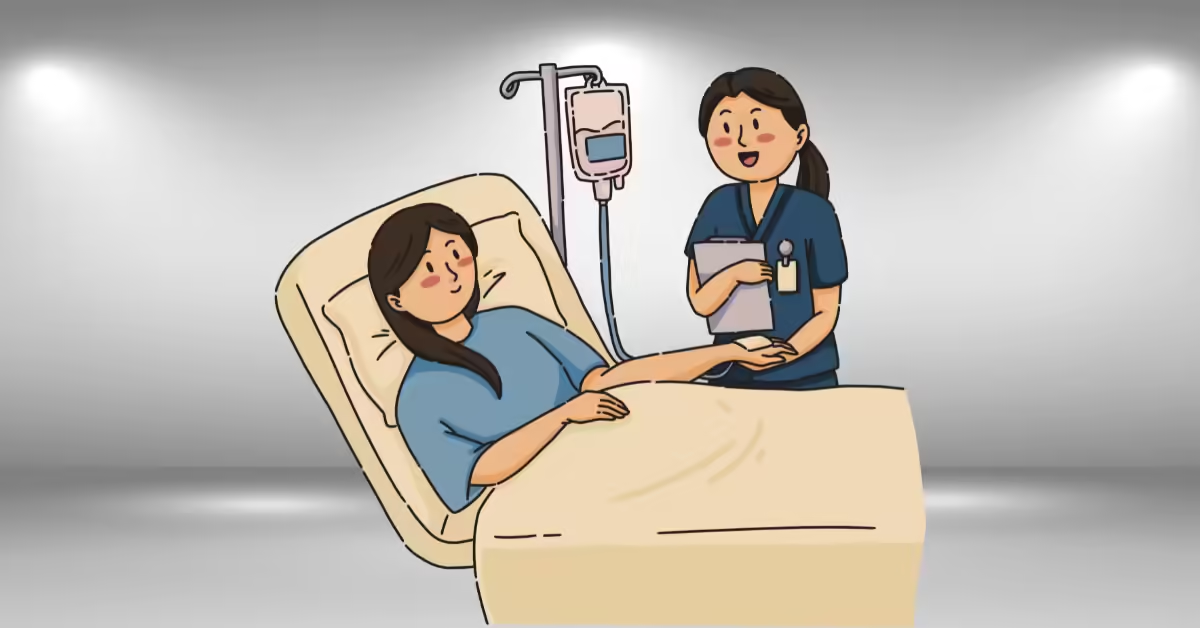What is a Patient Care Technician?
A Patient Care Technician (PCT) is a healthcare professional who provides direct patient care under the supervision of nurses or doctors. PCTs play a vital role in supporting patients with daily activities like eating, bathing, and moving around. They work in various healthcare settings, including hospitals, nursing homes, rehabilitation centers, and clinics.
The responsibilities of a PCT are similar to those of a Certified Nursing Assistant (CNA) but are more advanced. PCTs often perform tasks like monitoring vital signs, drawing blood, and assisting with medical equipment, making them essential members of the patient care team.
What Does a Patient Care Technician Do?
The duties of a patient care technician vary depending on the workplace but often include:
- Assisting patients with personal hygiene, dressing, and grooming.
- Feeding patients or helping them eat if they need assistance.
- Measuring and recording vital signs, such as blood pressure and heart rate.
- Drawing blood samples or inserting catheters.
- Assisting with medical equipment and procedures.
- Providing emotional support and companionship to patients.
- Documenting patient progress for nurses and doctors.
By performing these tasks, PCTs ensure that patients receive the care they need while helping healthcare professionals focus on more specialized duties.
Patient Care Technician vs. CNA: Key Differences
People often confuse Patient Care Technicians with Certified Nursing Assistants (CNAs) since both roles involve direct patient care. However, there are some key differences:
| Aspect | Patient Care Technician | CNA |
|---|---|---|
| Scope of Work | Broader, includes phlebotomy, EKGs | Focused on basic patient care |
| Training Requirements | Requires additional certifications | Shorter training programs |
| Workplaces | Hospitals, clinics, nursing homes | Primarily in nursing homes |
| Career Growth | More growth opportunities | Limited career advancement |
While both careers are rewarding, PCTs have a broader scope of responsibilities and may require additional certifications, such as phlebotomy and EKG (electrocardiogram) training.
How to Become a Patient Care Technician (Step-by-Step Guide)
Becoming a Patient Care Technician involves completing the required education and certifications. Below is a step-by-step guide:
- Earn a High School Diploma or GED
Most PCT programs require applicants to have completed high school or hold a GED certificate. - Complete a Patient Care Technician Program
You’ll need to enroll in a PCT training program, which takes 4-12 months. These programs cover essential topics like medical terminology, patient care techniques, and clinical skills. - Obtain Certifications
Many employers prefer certified PCTs. Common certifications include:- Certified Patient Care Technician/Assistant (CPCT/A)
- Phlebotomy Technician Certification (CPT)
- EKG Technician Certification
- Gain Clinical Experience
Most programs include clinical training, where students get hands-on experience with patients in real healthcare settings. - Apply for Jobs
Once certified, you can start applying for jobs in hospitals, nursing homes, or clinics. - Continue Professional Development
As healthcare evolves, consider taking additional courses or certifications to expand your skills and career opportunities.
Patient Care Technician Skills Employers Look For
To succeed as a patient care technician, certain skills are essential:
- Compassion and Empathy: Caring for patients requires emotional intelligence and understanding.
- Communication Skills: PCTs interact with patients, families, and medical staff, so effective communication is critical.
- Technical Skills: Knowledge of phlebotomy, EKGs, and medical equipment is important.
- Attention to Detail: PCTs must accurately document patient data and monitor vital signs.
- Physical Stamina: The job involves standing, lifting, and assisting patients with mobility.
These skills make PCTs highly valuable members of any healthcare team.
How Much Does a Patient Care Technician Earn? (Salary Insights)
The salary of a patient care technician varies based on location, experience, and workplace. On average:
- Annual Salary: $30,000 to $45,000
- Hourly Rate: $13 to $20 per hour
Salaries are generally higher in metropolitan areas and hospitals compared to nursing homes. PCTs with additional certifications (like phlebotomy) can also command higher wages.
Is Patient Care Technician a Good Career? (Pros and Cons)
Like any career, being a PCT has its advantages and challenges.
Pros
- High Demand: Healthcare professionals are always needed.
- Rewarding Work: PCTs make a positive impact on patients’ lives.
- Career Growth Opportunities: PCTs can advance into roles like nursing.
- Flexible Work Settings: Opportunities to work in hospitals, nursing homes, or clinics.
Cons
- Physically Demanding: The job requires lifting and long hours on your feet.
- Emotional Stress: Caring for critically ill patients can be challenging.
- Varying Work Hours: Shift work is common, including nights and weekends.
If you enjoy helping others and working in healthcare, becoming a PCT can be a fulfilling career choice.
Best Training Programs for Patient Care Technicians
Here are a few reputable programs and organizations offering PCT certification:
- National Healthcareer Association (NHA)
- American Red Cross Patient Care Technician Program
- Local Community Colleges
These programs provide both classroom learning and hands-on training, ensuring students are well-prepared for the role.
Job Description of a Patient Care Technician
Below is a sample job description to give an idea of what employers expect from PCTs:
Job Title: Patient Care Technician
Location: XYZ Hospital, New York
Responsibilities:
- Monitor and record patient vital signs.
- Assist patients with daily activities like bathing and eating.
- Perform phlebotomy and EKGs as required.
- Provide emotional support to patients and their families.
- Document patient progress and report to nurses.
Qualifications:
- High school diploma or equivalent.
- Certification as a CPCT/A or equivalent.
- Strong communication and technical skills.
The Importance of Patient Care Technicians in Modern Healthcare
Patient care technicians are critical in today’s healthcare system, providing essential support to both patients and medical staff. With an aging population and the rising demand for healthcare services, PCTs bridge the gap by offering hands-on care and technical assistance. This role helps hospitals and care facilities run efficiently by ensuring that patients receive the attention they need without overburdening nurses and doctors.
Additionally, patient care technicians contribute to patient satisfaction by building relationships and addressing personal care needs, which improves the overall quality of care. Their compassionate care plays a significant role in patient recovery and comfort, especially in long-term care settings.
The Future of the Patient Care Technician Profession
The future looks promising for patient care technicians, with the U.S. Bureau of Labor Statistics projecting growth in healthcare support roles over the next decade. This increase is driven by the aging baby boomer population and a growing focus on preventive care. Many healthcare facilities are expanding the responsibilities of PCTs to help handle higher patient volumes.
Furthermore, advancements in medical technology will likely shape the role of PCTs. Tasks like managing electronic health records (EHRs) and assisting with new diagnostic equipment are becoming part of the job. As the healthcare industry continues to evolve, continuing education and additional certifications will be essential for patient care technicians to stay relevant and advance their careers.
How Patient Care Technicians Contribute to Team-Based Care
In team-based care, PCTs play a vital role by ensuring smooth communication and collaboration among healthcare professionals. They act as the first point of contact for patients and provide vital updates to nurses and doctors. For example, they monitor changes in patient conditions, report abnormal vital signs, and assist with medication administration under supervision. This timely reporting allows medical staff to make quick decisions and provide better care.
PCTs also collaborate with physical therapists, social workers, and dietitians to create personalized care plans. Their involvement improves care coordination, especially for patients with chronic illnesses who need long-term care and monitoring.
Challenges Faced by Patient Care Technicians
While a career as a patient care technician is rewarding, it also comes with its share of challenges. PCTs often work long shifts, including night shifts and weekends, which can lead to physical and mental exhaustion. The job also involves emotionally taxing situations, such as caring for terminally ill patients or dealing with patient loss.
Another challenge is the risk of workplace injuries, as PCTs frequently assist with patient transfers and heavy lifting. To prevent burnout, many healthcare facilities now offer wellness programs and training on safe patient handling techniques. PCTs who take care of their mental and physical health are better equipped to handle the demands of the job.
While dealing with physically demanding tasks, it’s crucial to stay aware of potential health risks. For example, untreated infections can lead to serious health complications. Learn more about the alarming dangers of infections, including how long a tooth infection can take to become life-threatening here.
FAQs About Patient Care Technician Careers
1. How long does it take to become a patient care technician?
It typically takes 4 to 12 months to complete a PCT program and get certified.
2. What is the difference between a PCT and a CNA?
A PCT has a broader scope of duties, including phlebotomy and EKGs, while a CNA focuses on basic patient care.
3. Do PCTs need certification?
While not always mandatory, certification greatly improves job prospects and salary potential.
4. Can a PCT become a nurse?
Yes, many PCTs use their experience to transition into nursing roles.
5. Where can PCTs work?
PCTs can work in hospitals, nursing homes, rehabilitation centers, and clinics.
6. Is a patient care technician career stressful?
It can be physically and emotionally demanding, but also rewarding.
7. What certifications do PCTs need?
Common certifications include CPCT/A, CPT, and EKG Technician Certification.
8. How much do PCTs earn?
On average, PCTs earn $30,000 to $45,000 annually, depending on location and experience.
9. Are PCTs in high demand?
Yes, the demand for PCTs is expected to grow due to an aging population.
10. Can I become a PCT online?
Many theoretical courses are available online, but clinical training must be completed in person.
Conclusion
Becoming a patient care technician is a fulfilling and rewarding career choice for those passionate about healthcare. With the right training and certifications, PCTs can enjoy stable job opportunities, competitive salaries, and the chance to make a positive impact on patients’ lives. Whether you are starting a career or looking for a role with growth potential, being a PCT offers numerous benefits.




